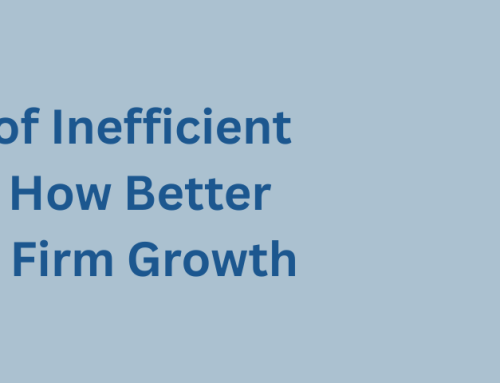Top Tips On Legal Staffing In 2023
(And Beyond)

As a law firm owner, your ability to recruit (and retain) top talent is instrumental to your success. However, given that a recent study from the International Bar Association found that 1 in 5 lawyers under the age of 40 are considering leaving the legal profession altogether within the next five years, this could prove to be challenging.
While the 2022 Occupational Outlook Handbook does predict growth within the sector, “about 48,7000 openings for lawyers are projected each year, on average, over the decade. Many of those openings are expected to result from the need to replace workers who transfer to different occupations or exit the labor force, such as to retire.”
Consequently, law firm owners must be aware of the various staffing challenges they’re likely to face in the coming years to reduce their impact on their firm.
What are the most significant staffing challenges in the legal sector?
The Great Resignation
The phrase, “The Great Resignation,” also known as the “big quit,” became common workplace terminology in 2021 – when a record number of professionals began to quit their jobs en-masse. However, the movement continued into 2022, where its impact on the legal industry became apparent.
While more professionals than ever were seeking out new work, critical positions remained unfilled as firms began to compete over top talent in what ALM Law described as “the biggest war for talent seen in over a decade.”
While experts predict that the great resignation may have come to a halt, data suggests its impact will continue into 2023 as competition during the recruitment process remains high.
Quiet Quitting
“Quiet Quitting” is a form of workplace disengagement where employees do what they need to do and nothing more. This movement is designed to help workers retain a sense of agency and protect their best interests, especially in the face of burnout.
However, this can lead to a variety of workplace staffing issues. For example, it may sour colleague relationships if some partners believe they are working harder than others or picking up their slack. This tension could cause both employees involved to look elsewhere for work. Studies also show that quiet quitting can impact your bottom line by reducing productivity and efficiency within your daily operations.
A call for a better work-life balance
As of late, one of the biggest recruitment trends within the legal field is a desire to formulate a better work-life balance. Hustle culture is dying out, and in its place, a workforce who are better at advocating for themselves and ensuring their needs are met.
This is evidenced by the fact that many are calling for shorter working hours. For example, a report from Bloomberg Law found that “since Q1 20201, there’s been a trend of in-house and law firm attorneys reporting working fewer hours per work – from an average of 53.5 hours per week in Q1 2021 to an average of 48.9 hours per week in Q2 2022.”
Firm owners should be willing to accommodate the needs and expectations of their workforce should they want to retain top talent moving forward.
Top Tips For Legal Staffing In 2023
Taking into consideration the above staffing challenges, there are various changes you can introduce to your business to ensure you retain and attract top talent.
Create a flexible workspace
Top employers are able to build a workplace around their employees instead of expecting their employees to fit into a pre-existing mold. This creates a more positive working environment where each and every individual feels respected.
You can implement positive changes to this effect in many ways. For example, you can offer hybrid working opportunities to those who prefer working from home. Alternatively, you could opt to run entirely remotely. This can prove handy in a staffing crisis, as this gives “law firms and corporations the opportunity to take full advantage of contract talent, no matter where in the country they might be located.”
Create a reward system
Creating a reward system for new and remaining employees can also help you in the face of a staffing crisis. This is because it gives them an incentive and a sense of purpose. It can also be a great motivator, encouraging them to work harder and be more productive.
For example, according to a study from St Mary’s University (Minnesota), “for the financially-driven employee, ways to bolster their take-home pay can be a strong incentive. This can be a particularly strong option for those in positions whose performance can directly improve company revenue.”
You should also ensure you provide employees with access to other benefits that convince them to send in applications for your company when job seeking. For example, this could include health insurance or a travel-to-work scheme.
Reduce Burnout
Burnout is all too common within the legal industry. Beyond employee dissatisfaction, poor retention rates tend to be another symptom of burnout, as employees leave to seek a better work-life balance.
Fortunately, there are many ways in which you can reduce burnout without having to turn away new clients. For example, you could use outsourcing to your advantage, focusing primarily on areas outside your employees’ skills (and job descriptions).
If you’re looking to improve staff retention in 2023 by battling burnout, we’re here to help. A team of skilled financial advisors, FinOp group, can take on numerous financial duties on your behalf – from tax planning to payroll. This way, your legal team can focus on the work they’re good at!
Get in touch today to schedule a free consultation.







